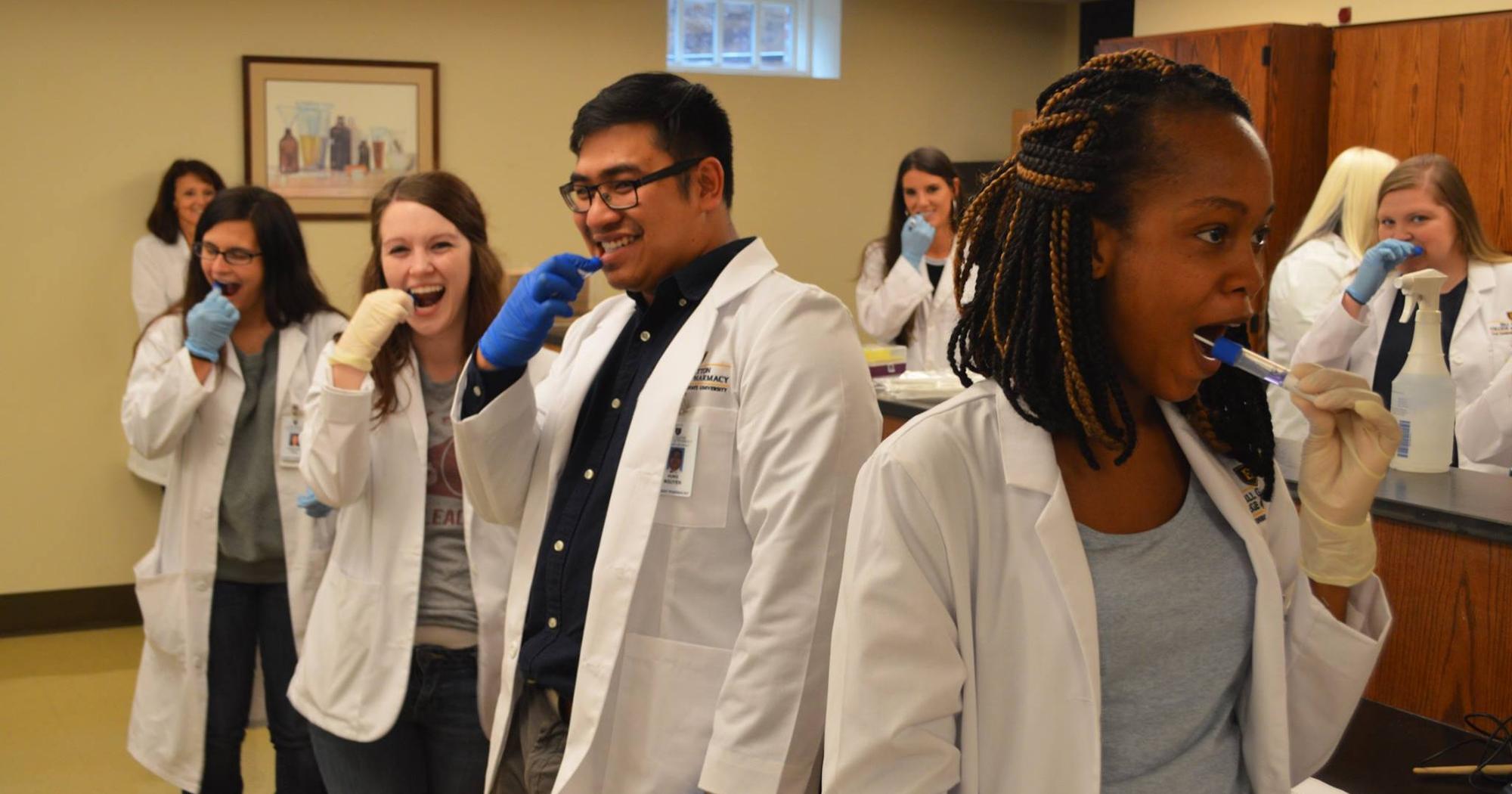Gatton students experience future of pharmacy

When Abby Lopp, a first-year pharmacy student at East Tennessee State University Bill Gatton College of Pharmacy, received the report back of how her body processes different pharmaceutical compounds, also called her pharmacogenomics (PGx) profile, it shined new light on her medical history.
“I used to take Zyrtec in high school and remember feeling tired and drowsy,” said Lopp, from Jefferson North Carolina. “After getting my PGx report back, I learned that I have increased adverse effects from Zyrtec, so now I take Allegra.”
Because all humans have slightly different genes, made up of DNA, people metabolize pharmaceutical drugs differently.
“The use of PGx, or Precision Medicine, is bringing a new foundation of knowledge and prediction to the practice of pharmacy,” said Dr. David Hurley, who along with Dr. Sam Harirforoosh, obtained a grant in 2018 to fund the complete PGx analysis of all first years at Gatton who chose to have the test done.
“Thanks to vast research work done in this area, it is now possible to predict how a drug will be processed in a patient once their DNA has been analyzed,” continued Hurley. “This means that soon it will be routine to know in advance what types of medicines are best for each patient in the pharmacy. The ultimate outcome will be the first class of pharmacists at Gatton who have knowledge and experience so that they can lead the use of PGx with their future patients.”
Last fall, the students took their own cheek swab samples and sent them off to be processed and the DNA sequenced in collaboration with Dr. Tim Wiltshire at the UNC Eshelman School of Pharmacy. Hurley then helped them understand the reports.
“It’s for sure the future of pharmacy,” said Lopp. “It’s what all patients dream of as far as avoiding side effects and seeing better outcomes… They’ll be more satisfied with their health and the healthcare system.”
Jacquelyn Crawford, from Church Hill, Tennessee, said her results were “enlightening,”
“It turns out there are many medications that I have an increased chance of adverse outcomes to them, as well as the inability to metabolize some,” she said. “This means that for some medications that are regularly prescribed I may need a smaller dose, they may not work entirely, or I could even have a negative response to something that is meant to improve my health.”
Benjamin Kennard, from Corryton, Tennessee, was similarly impressed with his results.
“I expected a report back with a couple of genes and drugs that were red flags based on my genome,” he said. “I did not expect the wealth of knowledge I now possess about my body. It will be information I can use for the rest of my life. In addition, now that we learned how to read and interpret these reports, one day we’ll be able to work with medical providers and personal medicine departments for all the patients who utilize pharmacogenomics.”
In fact, Gatton students will now be able to put that knowledge to work at a new month-long PGx rotation in the Personalized Medicine Program at Mission Health in Asheville, North Carolina, which facilitates genomic test ordering and helps with the interpretation and application of results. Students in those rotations will participate in personalized medicine clinic visits, provide consultations for clinicians about pharmacogenetics testing, as well as attend tumor boards and propose recommendations for molecular testing, as needed.
P3 students Jack Novansy and Del Dorjsuren will be the first to attend the rotations in the next academic year.
The results were confidentially communicated to each student. Also, the students were surveyed before and after the PGx analysis to understand their initial concepts of the field, the real knowledge they have learned, and how to better train succeeding classes more effectively.
 Water Leak Investigation and ...
Water Leak Investigation and ...